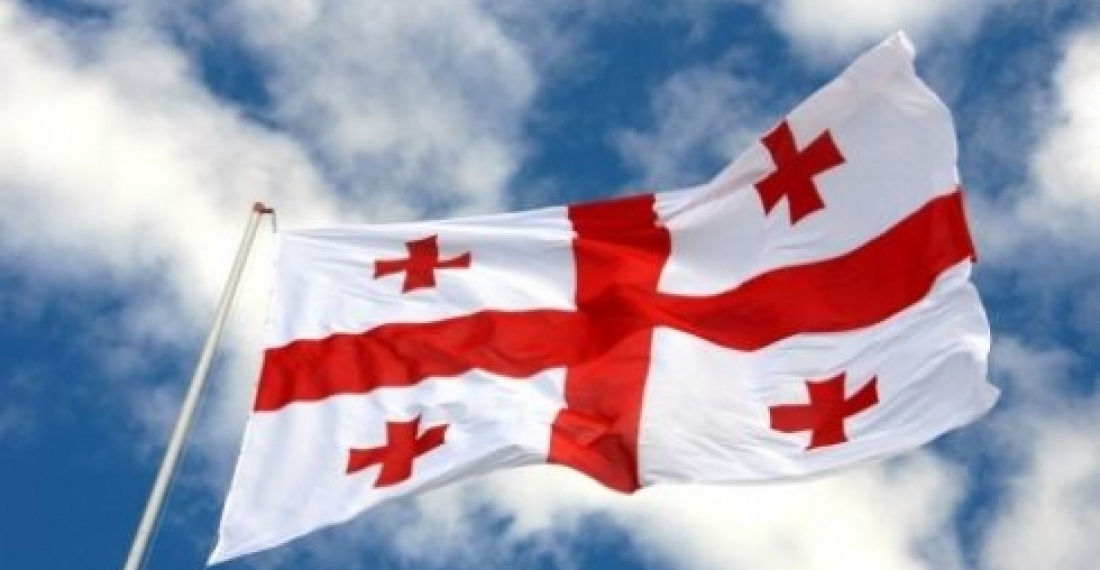Most Georgia politicians expected that their parties will do better at local elections held throughout the country on Sunday. But as Jospeh Alexander Smith reports from Tbilisi in this fourth and final report on the elections for commonspace.eu, the poll confirmed that Georgian democracy is taking roots, and that is good news for the Georgian people.
Georgia went to the polls on Sunday to elect local mayors, municipality heads and local council members after a campaign period strained by a fierce political rivalry between the ruling Georgian Dream coalition and the former governing United National Movement (UNM).
Across the country, the ruling Georgian Dream coalition maintained a clear lead over the UNM in mayoral races, winning almost 83% of the vote in the North-Western city of Ambrolauri and 58% in Zugdidi.
However, in eight cities, including the capital Tbilisi, a run-off vote will be held after the Georgian Dream candidates failed to pass the 50% threshold required to elect a mayor. Run-offs may also be held in up to a dozen municipalities where the candidates for municipality head (gamgebeli) failed to win seats outright.
Despite having promised an outright victory to supporters before the election, Prime Minister Irakli Gharibashvili welcomed the results as "revolutionary", and hailed the elections as "an historic day for our country". "This is very good for our democracy, our country and our people. This is a unique opportunity to further consolidate Georgian democracy" Gharibashvili said at a news conference a day after the poll.
Accepting the 50% threshold was a huge political risk for the ruling coalition, which had initially proposed a threshold of 40% for mayors and 33% for gamgebelis back in January, when the legal framework for these elections was still being debated. Eventually the government yielded to opposition and civil society demands that local government officials be elected by an absolute majority.
As expected, the UNM of former president Mikheil Saakashvili remained the second largest political force in the country, taking 22.4% of the party-list vote across Georgia and nearly 27.97% in the Tbilisi mayoral election. These results correspond roughly to the party's performance in last year's presidential election and indicate a stable level of support rather than the ‘disappearance' from the political scene predicted by PM Gharibashvili.
In third place in the polls with 10% is the coalition of Christian Democrats and ex-parliament speaker Nino Burjanadze's Democratic Movement. Burjanadze, a key figure in the 2003 Rose Revolution that swept President Saakashvili to power, went into opposition politics in 2008 and has since positioned herself as an ‘accomodationist' vis-à-vis relations with Russia, and a critic of the government's pro-EU foreign policy.
Despite local and international observer groups delivering a positive assessment of the polls, several serious violations of electoral procedure were reported. In Martvili in Western Georgia's Samegrelo region, ‘armed and masked men' broke into a polling station before dawn and removed ballot papers, which were later found dumped nearby. In nearby Anaklia, angry residents of one village smashed ballot boxes and destroyed election documents, claiming that local authorities hadn't done enough to search for their missing relative.
On Monday, the UNM released a video which it claims shows ballot-box stuffing in the southern Marneuli district, prompting an immediate investigation by the prosecutor's office. The results from two precincts in the area have since been annulled and repeat elections will be held there on the 29th June. Burjanadze's more grandiose claim that arch-rivals Georgian Dream and UNM actually collaborated to rig the vote in their favor has been dismissed by election officials.
So what do the results mean for the state of Georgian democracy? "As a Georgian citizen, I'm shocked", says Ramaz Sakvarelidze, political commentator and former head of President Shevardnadze's press service, "that the ruling party can fall short of the threshold by 5% and not try to falsify the results somehow. This is something the previous government did ... and the fact it's not happening now means we might be entering a new period of respectable elections."
It's also important to note that voters were not mobilized by the political death-match rhetoric of the two biggest parties' campaigns, as evidenced by a relative low turnout of 43%. "It's clear that voters are looking for new political forces" says Sakvarelidze, "as you can see Burjanadze has maintained a strong third position in this vote as in the presidential elections last year".
Parties like the conservative Alliance of Patriots of Georgia, which garnered 5% of the vote nationwide are "filling a political vacuum" according to Sakvarelidze. Voters are also starting to choose personalities over parties - the popular TV anchorman Aleko Elisashvili stood as an independent majoritarian for the City Council in Tbilisi's Saburtalo district and beat the ruling party's candidate by 5%.
While the election results are a wake-up call for the ruling coalition, they are an even bigger pill to swallow for the UNM. The party failed to win any mayoral or municipality head contests, and will need to work a lot harder to achieve the political comeback predicted this week by jailed former Prime Minister Vano Merabishvili.
The polls have also been a boost for public confidence in the Central Election Commission, the body which administers the polls. Transparency International Georgia noted that "polling stations mostly opened on time and the vote launch procedures were conducted in compliance with the law. Polling stations had been supplied with all the necessary documents."
So, is democracy winning in Georgia? Well, Sakvarelidze is cautious, but acknowledges that "compared to what we had before, this is a huge step towards democracy, and a very important moment for Georgia."
Source: Jospeh Alexander Smith is a free lance journalist based in Tbilisi. He contributed this article to commonspace.eu.







